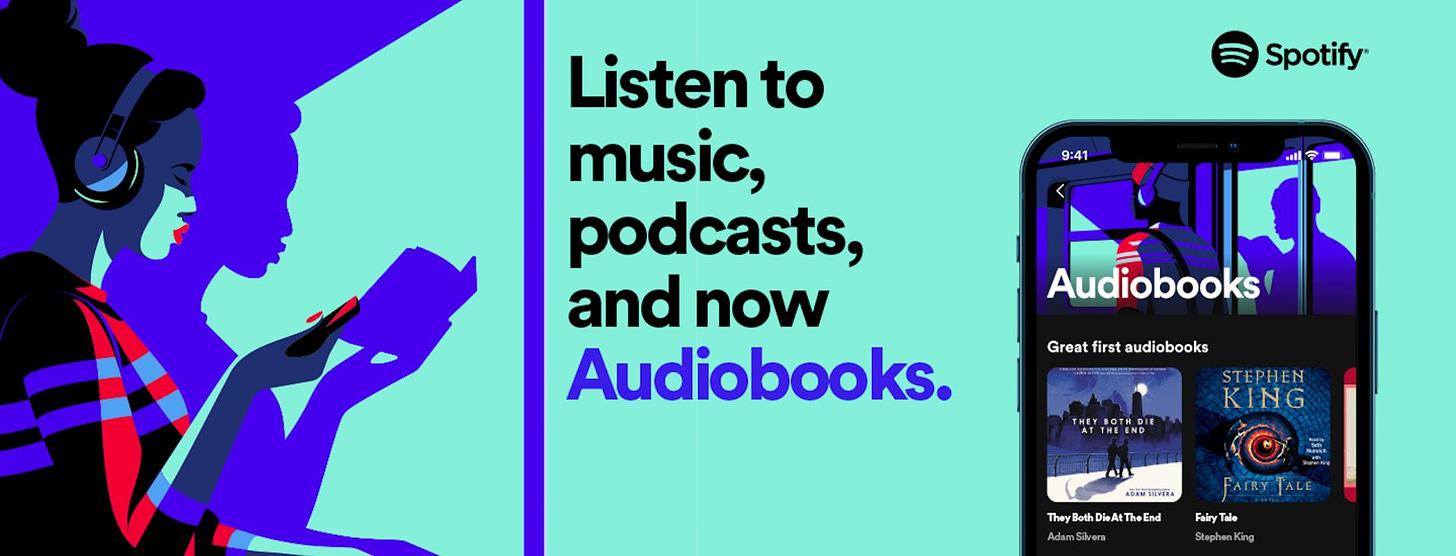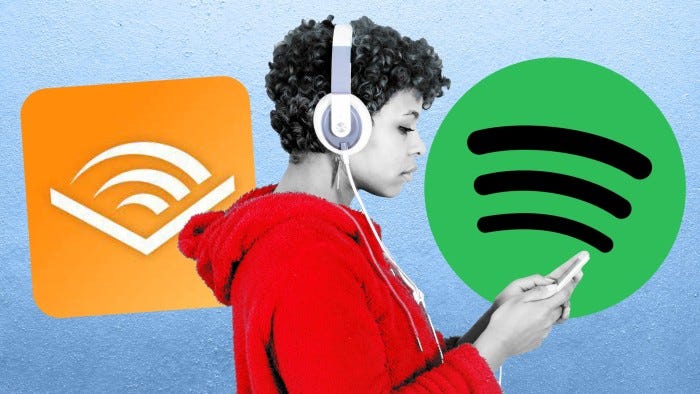Airbnb to Start Long Term Rentals, Spotify Moves into Audiobooks and Jeff Bezos Joins the Satellite Internet Race. Newsletter #26
Airbnb is planning a push into longer-term housing rentals and experiences as part of a shake-up to its app.
Airbnb to Start Long-Term Rentals
Spotify Moves into Audiobooks
US Job Growth Surpasses Expectations
Jeff Bezos Joins the Satellite Internet Race
Airbnb to Start Long-Term Rentals
Airbnb is planning a push into longer-term housing rentals and experiences as part of a shake-up to its app.
An update in November will reportedly be the biggest one ever and begin offering rentals up to a year and new experiences to users such as the ability to rent cars and dining pop-ups.
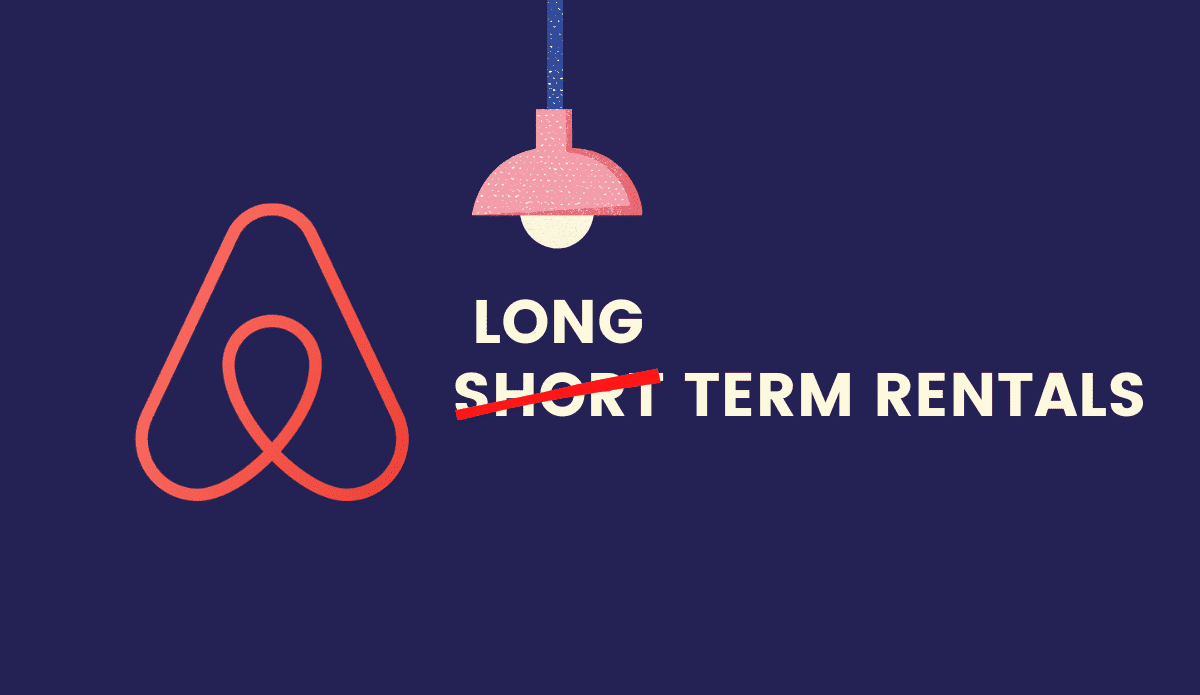
CEO, Brian Chesky, said “Travel is our sweet spot. Eventually the big frontier for Airbnb is to go beyond travel, there’s an eventual opportunity for Airbnb to become a greater part of your daily life. Not just once or twice a year.”
Monthly rentals are already available on the site but only 18% of nights booked in Q2 of 2023 were for stays longer than 30 days.
Chesky believes long-term bookings represent a huge opportunity, saying “In this post-pandemic world, there's this unrecognized market of a month, two months, three months, because people can work from laptops, people are going away for the summer.”
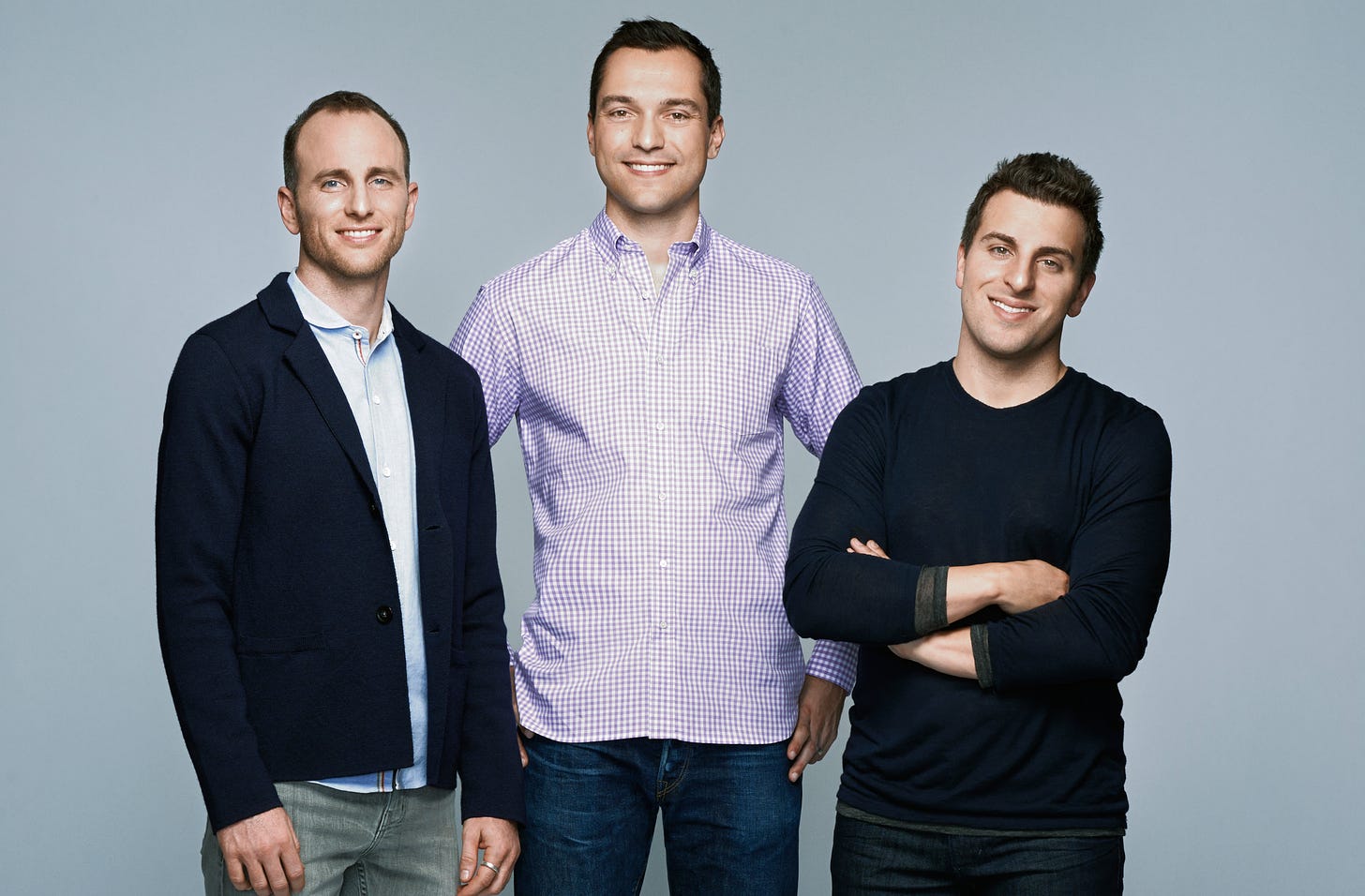
Airbnb was greatly impacted by Covid but has since bounced back strongly, the new offers will provide another source of revenue, which was up by 40% in 2022 but will likely slow now as we move into a post-pandemic world.
The platform has also faced pressure from regulators around the world since Covid as it pushes up rental costs for locals.
New York just introduced rules to limit people's ability to rent their rooms on Airbnb, cutting about 75% of listings in the city.
In February Portugal said it wouldn’t grant anymore outlawed short term rental licenses in its cities after housing costs skyrocketed post-pandemic, largely thanks to Airbnb and remote workers moving there.
Little else is known about the new strategy from Airbnb but they’re also reportedly looking into offering new experiences via the app and car rentals.
We should find out more in November when the update is pushed out.
Spotify Moves into Audiobooks
Spotify has made deals with the world's largest publishers to offer paying subscribers access to audiobooks and finally create competition for Amazon in the space.
Paying subscribers will be able to listen to 15 hours a month of audiobooks at no additional cost and will have to pay $11 to listen to 10 extra hours after that.
150,000 titles will be available including more than 70% of the New York Times best sellers list.
Despite its popularity, the company has struggled to make a consistent profit and has recently pulled back on its podcasting efforts to cut costs.
Spotify CEO, Daniel EK, says he expects audiobooks to have profit margins above 40% and that they will help Spotify’s business.
The company lost €527 million on €6.2 billion in revenue in the first half of 2023.
US Job Growth Surpasses Expectations
US job growth data on Friday beat forecasts with 336,000 new jobs added in September, analysts had expected just 170,000.
The news pushed bond yields to a 16 year high and fuelled investors’ worries that interest rates could stay higher for longer.
However, inflation in the US still remains amongst the lowest of any major economy in the world at 3.6%.
Reacting to the news, Joe Biden said “It’s no accident. We are growing the economy from the middle out, the bottom up.”

The Fed will meet again at the end of October and futures markets on Friday gave a 50/50 chance of rates being raised before the end of the year.
Consumer price data next week could be the difference between a rate increase and holding them where they are at the moment.
Most Fed officials expect one more interest rate increase in 2024 and a gradual decline over the next two years.
Jeff Bezos Joins the Satellite Internet Race
Amazon founder Jeff Bezos is venturing beyond terrestrial commerce into the boundless domain of space with his ambitious Project Kuiper.
Last Friday, the business magnate launched a pair of prototype satellites, paving the way for a broadband mega-constellation aimed at providing global internet coverage.
This bold endeavour, if successful, will see the deployment of over 3,200 spacecraft in the coming years to facilitate internet connectivity across the globe.
This will make it a direct competitor to Elon Musk's Starlink, which already provides satellite internet in numerous countries.
Project Kuiper aims to tap into the burgeoning market for high-bandwidth, low-latency internet services that allow internet connectivity to be delivered from above, rather than the more common ground-based fiber connections.
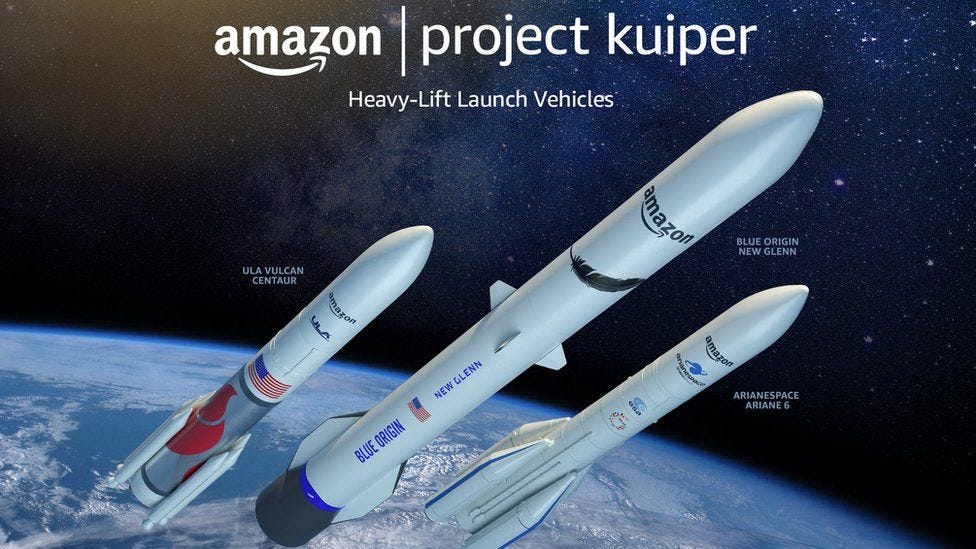
The road to space is well-trodden with SpaceX's Starlink leading the charge with over 4,800 operational spacecraft, and UK-based Eutelsat-OneWeb having a network of 620 satellites.
The race is further fuelled by emerging projects from Canada, the EU, China, and other US based companies.
Concerns exist however among the astronomy community regarding the potential interference mega-constellations like Kuiper could pose to people trying to look at the night sky.
The glare from an experimental satellite, BlueWalker-3, recently showed how such spacecraft could severely hinder astronomical observations, a concern exacerbated by the potential for satellite collisions creating orbit-clogging debris.


